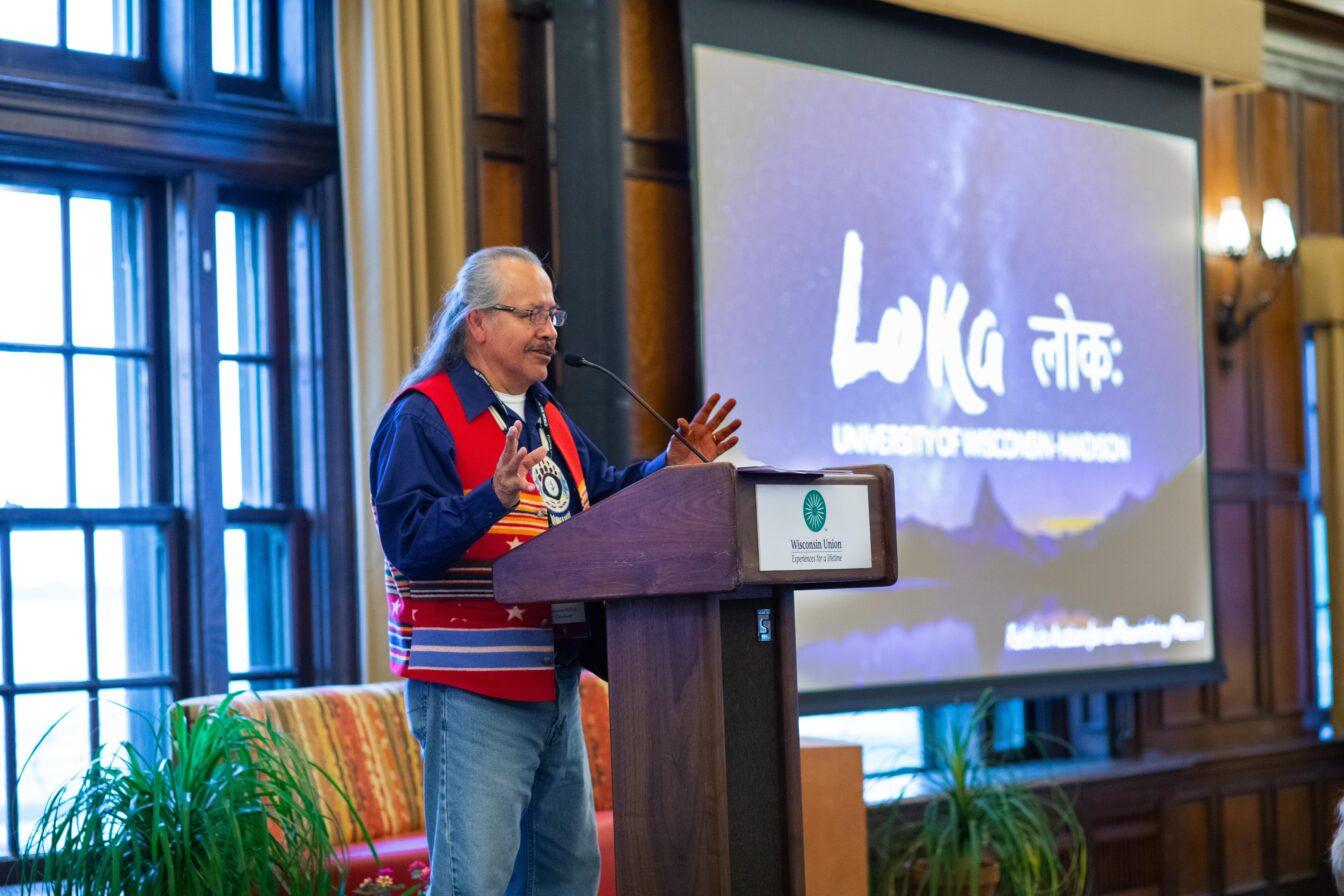Dekila Chungyalpa found success merging faith and conservation in the Himalayas. While there, she realized the environmental conservation movement should work with religious groups to improve environmental practices.
Now, Chungyalpa is the Director of the Loka Initiative in the Center for Healthy Minds — an interdisciplinary program which supports faith-based environmental and climate efforts. The Loka Initiative launched in 2019, and they have partnerships with evangelicals, First Nations and Tibetan Buddhists.
“Our goal is basically to activate and support faith and Indigenous communities to be as resilient as possible when it comes to environmental and climate issues, because those are the biggest stakeholders,” Chungyalpa said.
Wisconsin farmers evaluate climate change impacts, consider solutions
While they are often forgotten as stakeholders in the climate issue, many faith leaders across the world support climate solutions, Chungyalpa said. In fact, over 80% of the world subscribes to a faith, and faiths collectively own over 8% of habitable land. They also are collectively the third-largest category of financial investors, Chungyalpa said.
Chungyalpa is working to bring the forces of faith and science together to address climate issues. The Loka Initiative does outreach and partnership events to connect University of Wisconsin researchers and faith leaders. Through these partnerships, faith leaders can learn from experts while informing them on what their faith values in the climate movement.
Recently, The Loka Initiative held a public event where they hosted a panel of climate scientists and evangelical leaders from across the country. The event was the end of a gathering called Creation at the Crossroads, where church leaders and pastors came together to discuss creation care — caring for God’s creation. The event was designed to promote healthy discourse surrounding climate change and creation care in Christian communities.
Creation at the Crossroads connected pastors with three UW scientists, who trained the pastors on topics such as biodiversity, conservation, global public health and climate projections, Chunyalpa said. The training helped pastors understand how the climate and environment are changing and how they can address it in their own congregations.
From citizen to scientist: How anyone can advance scientific research
“Here is this perfect example of how religion and science come together to strengthen one another,” Chungyalpa said. “Because the religious leaders were also informing the scientists on, ‘These are the kinds of communications that actually work for our communities, and these don’t.’”
The Loka Initiative is also funding a research project that is studying eco-anxiety and climate distress, Chungyalpa said. The project focuses on developing resources for managing those emotions and channeling them into activism and other pro environmental behaviors.
Kirstina Fiedler is a fourth year undergraduate at UW working as a program assistant for the Loka Initiative. She felt powerless to the world’s problems during the pandemic, but when she met Chungyalpa last spring she felt empowered to join The Loka Initiative.
Fiedler said the Loka Initiative is developing a course about eco-anxiety, going with the initiatives focus on mental health. The Loka Initiative works to connect people with eco anxiety to communities, many of which are faith-based, that can make them feel empowered towards climate activism.
“I think what’s so powerful about Loka is that it really gives you hope that your actions matter and your voice matters and like, you can do something and you’re not just an observer. It’s like you have some control,” Fiedler said.
Hobby to science: How tracking seasons blossomed into climate science
When developing The Loka Initiative, Chungyalpa wanted to use religion to fill knowledge gaps in the climate movement. To achieve this goal she planned to build partnerships with faith groups that global environmental groups don’t represent.
She said Indigenous people are often underrepresented because they are place based, or dependent on location. Representation of these communities can be conflated, and many will associate representation of one Indigenous group with representation of all Indigenous groups, which means the values of some Indigenous people can go underrepresented.
The Loka Initiative works to bridge that gap without bringing in their own agenda. Chungyalpa said a foundation of The Loka Initiative is that they are entirely informed by the values of their faith partners, such as Indigenous elders.
“I think this is an example of how Loka works. When we say we are in partnership, we take it really seriously,” Chungyalpa said.
Chungyalpa said that working with First Nations elders, they really try to listen to the environmental values of their communities. She said First Nations don’t want to use technical scientific terms when talking about these issues, as they believe it creates a separation of natural things.
Climate change negatively affects Wisconsin residents’ health
The Loka Initiative is currently working on a documentary with the First Nations of Wisconsin, Fiedler said. The film will explore traditions of the First Nations and how they manage the land sustainably.
Though she is just getting started in the climate and faith fields, Fiedler is amazed by how the connection of faith on environmentalism comes together at an international level.
“It’s incredible how international this movement is,” Fiedler said. “I would love to continue working for the local initiative and continue this work. I think I’m definitely like just getting started.”


















